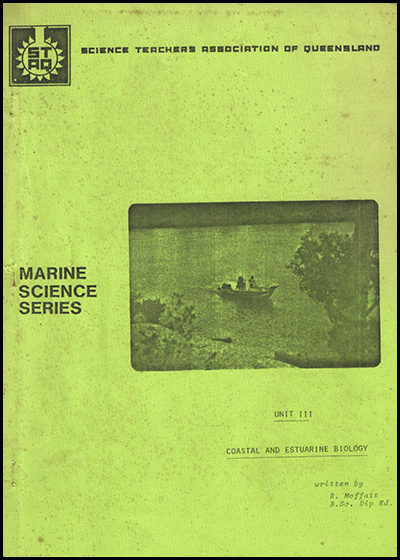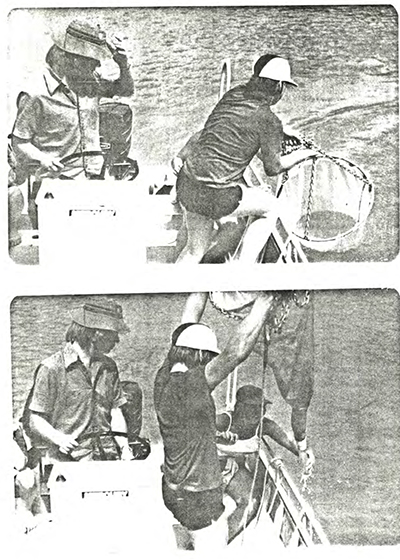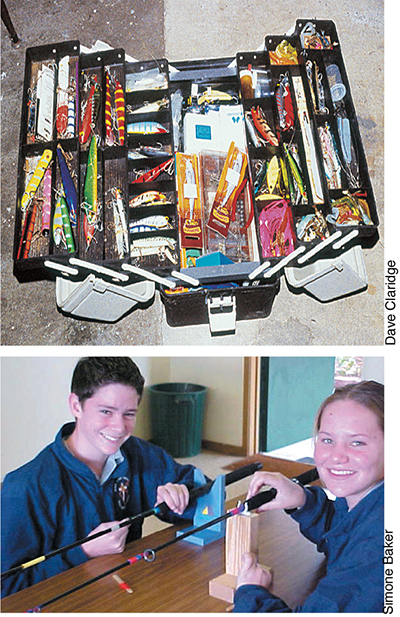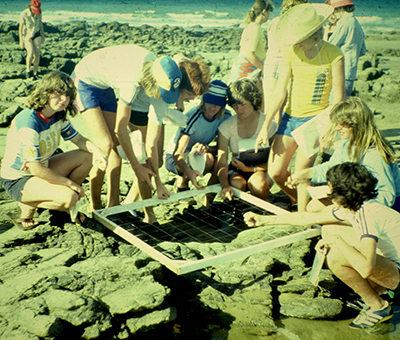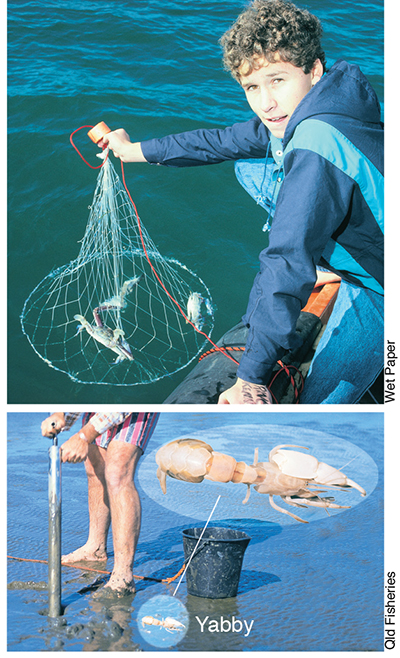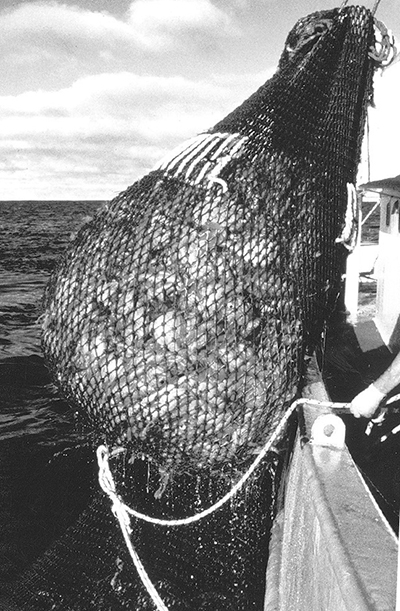1983 STAQ Coastal and Estuarine Biology

ISBN : 0 9598303 9 1
Published Date : 01 June 1983
Product Code : 1983 STAQ
Format : Free PDF for download
By Bob Moffatt
Non-commercial school licence
The publisher and author/s of this pdf file grant to the school a revocable, non-exclusive, non-transferable right and licence to use the content, exercises, lab and field work lesson notes within the school for educational purposes only.
Yearly record keeping
To ensure fair payment is made to collecting societies, educational institutions are to record the digital ISBN above.
- To do this go to the school office and ask the IT department or whoever looks after digital book licences to record the ISBN in the school digital library licence catalogue.
Copyright
Except as permitted by the Copyright Act 1968 (Cth), you may not reproduce any of the contents of this publication, without the written permission of the copyright owner.
The title to, and intellectual property rests with the publisher's author/s, illustrators, photographers and design consultants and nothing in the agreement should be construed as transferring those rights to the school.
Educational exemption
There are exemptions under the Act that allow educational and government use of text, images and music scores for educational purposes.
These exemptions are in Part VB of the Copyright Act 1968 (Cth), where you are entitled to reproduce or communicate 10% of the words or one chapter from this file for educational use within your school. If you wish to reproduce or communicate MORE than 10% contact the copyright owner.
For more information, see www.copyright.com.au and www.copyright.org.au.
Teachers Information
This booklet was written for multi strand science syllabus requirements Science Technology and the Environment and Ecology.
SCIENCE, TECHNOLOGY AND SOCIETY
The aims of this topic are to assist the student in developing:
- a recognition of the influence of science on contemporary society;
- the ability to identify the impact of technological innovation and to study the factors which govern it; and
- those attitudes and values related to effective exercise of the citizen's role in controlling the products of science.
These aims may be viewed as arming the citizen with three levels of preparedness. They are the required knowledge, the necessary abilities, and the willingness to participate in the debate and decision making concerning science and its products. In order to ensure that people are not only informed but involved, it is important to give significant weighting to the Affective Objectives. Such aims encompass much of the broad perspective of the whole subject and thus may be attained by a variety of means. While it is possible to construct a single unit of work to promote the objectives of this topic, an alternative which may be preferred, is to incorporate such learning experiences into a number of work units whose principle focus is another of the topics (core or optional). In this way the interactions of science, technology and society could form an underlying theme for much of the program.
BOSSS Draft Syllabus 1982
ECOLOGY
Life on earth depends on a delicate balance of events. Each living thing depends for its survival on other living things, on the physical characteristics of its immediate environment, and on energy from the sun. Any disruption to this delicate balance may threaten the life of living things, including man.
This topic should introduce students to the many interrelated factors which govern this delicate balance of nature. Students should become conversant with techniques to study the environment and man's effect upon it. They should attain a working knowledge of the principles of ecology, through a detailed study of a suitable ecosystem in their own environment. Field work would necessarily form an important part of this topic.
In addition to basic ecological principles, various aspects of man's effect on this delicate balance e.g. pollution, use of technological controls, conservation, should be stressed where applicable.
BOSSS Draft Syllabus 1982
Australia's coastline forms a special place in our environment because over 90% of us live there. Due to different Ecological, Economic, Social and Recreational interests many conflicts arise over the use of our Estuaries, Beaches and Barrier Reefs.
Sand Mining, High Rise development, Longline Fishing, Low water Land sales, Resort development and oil Pollution are but a few of the real issues that face us now. There is an urgent need for all Australians to develop an attitude towards sensible resolution of these conflicts.
Acknowledgements
The author would like to thank the following individuals for their criticism, inspiration and advice in both editions:- David Kopelke, Greg Martin, Graham Mitchell, Steve Hall, Sue Oats, Meran Kilgour, Tony Failes, Ken Gilbert, Kelvin Rodgers, Jim Baker, Vera Weitsz, Sue Cerato, Stanna Hodge, John Howard, Dianne Hempenstall, Ann Kermy, Dennis Bridger, Bob McAllistar, Cecily Gredden, Mel Phillips, Bill Baumann, John McGregor, Ann Summers, John Howard, Ian Hodge, Sue Oats, Gill Green, Kel Rodgers, Carol Clavery, Jill Green, Tony Failes, Steve Savvakis, Rob Heaney, Dave Read, Meran Kilgour, and especially the Brisbane College of Advanced Education lecturers David Tulip, Cam McRobbie, Jack Marsh, Keith Lucas and Cec Burr.
This set of notes is one in a series that hopefully will give students the skills necessary to become involved in these issues and make sensible contributions to coastal environmental decision making. In doing so I hope that the coastline may be managed in such a way that future Australians will derive as much pleasure out of it as I have.
My thanks must go to S.T.A.Q. for providing the financial backing and support for this project. Thanks also to my Mother and Father who deciphered and typed my bad writing; and to Len Zell of the Great Barrier Reef Marine Park Authority who read and critised the draft and for making many useful contributions. As this is a first draft any comments would be gratefully acknowledged.
Contents
PLANKTON
- Plankton groups
- Phytoplankton and zooplankton
- Jellyfish and seaweeds
- Food webs, chains and pyramids of the sea
- The Web of life
- Plankton nets
NEKTON
- Nekton types
- Squids, Sharks and Rays
- Fish and Turtles
- Birds and Marine Mammals
BENTHOS
- Benthos types
- Prawn Biology
- Oysters
- Crabs and Scallops
- Pearls
- Abalone and Mussels


